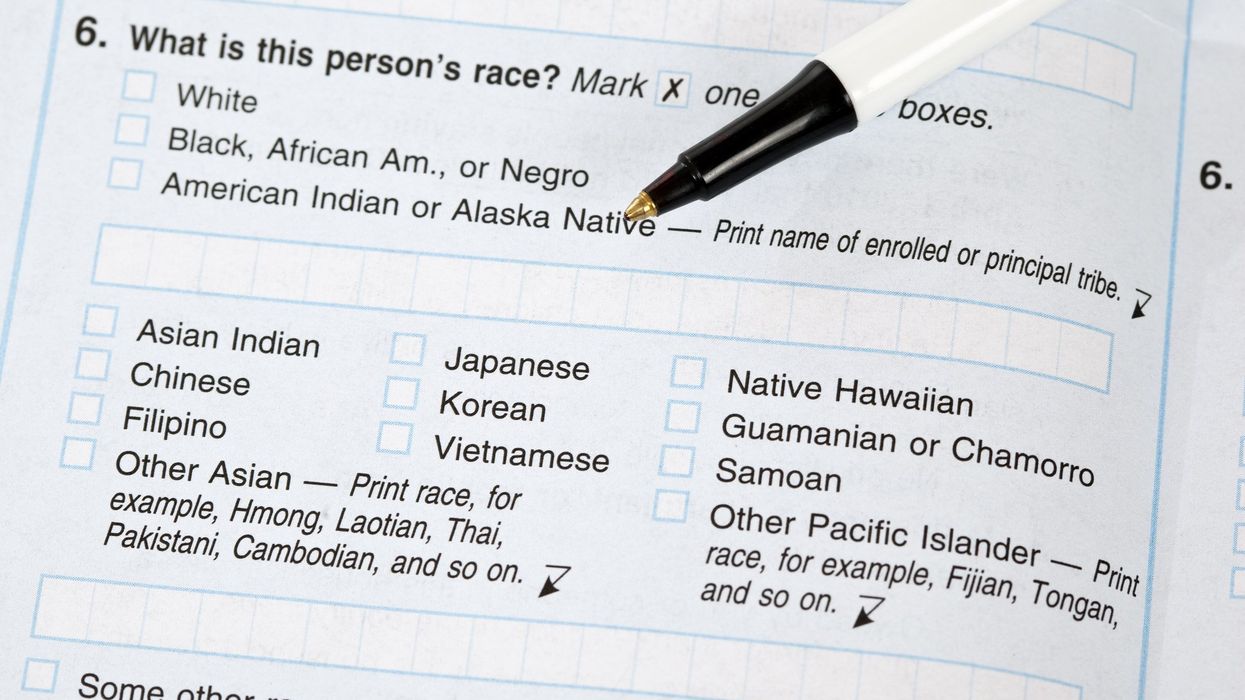
blackwaterimages/Getty Images stock photo

The White House's Office of Management and Budget, currently in the hands of the Biden administration, has announced that significant changes have been made to questions related to race and ethnicity on most standard federal surveys and questionnaires, including the U.S. census. These are the first such changes to be made in nearly 30 years.
The first major change is that race and ethnicity, which had been addressed in separate questions, will now be conflated, though respondents may still select multiple options. One purpose for this change, the AP reported, is to simplify the process for Hispanic people. The AP claimed that people of Hispanic heritage often "aren't sure how to answer the race question" and as a result either select "some other race" or leave the question blank.
There will also be a new racial category added to the mix. Since 1997, the U.S. has recognized five minimum racial categories: American Indian or Alaska Native, Asian, Black or African American, Native Hawaiian or other Pacific Islander, and white. Now, respondents will have the additional option of selecting Middle Eastern and North African.
Those in charge of creating surveys should also consider breaking several racial categories down even further, the OMB said. For instance, the office suggested, some who select the category "black" might more specifically identify as Haitian or Jamaican.
Finally, the OMB has eliminated the following terms from federal surveys and questionnaires because they are either offensive or inadequate: Negro, Far East, majority, and minority.
Many on the left are celebrating these new changes, which — according to the AP — were made over the last two years by "a group of federal statisticians and bureaucrats who prefer to stay above the political fray."
"It feels good to be seen," said Democrat state Rep. Anna Eskamani of Florida, whose parents were born in Iran. "Growing up, my family would check the 'white' box because we didn’t know what other box reflected our family. Having representation like that, it feels meaningful."
"You can’t underestimate the emotional impact this has on people," added Meeta Anand, senior director for Census and Data Equity at the Leadership Conference on Civil and Human Rights. "You are seeing a desire for people to want to self-identify and be reflected in data so they can tell their own stories."
However, the AP's reporting also notes that the new changes, which will greatly reduce the number of people considered white, will likely have political consequences in terms of congressional districts and the understanding and enforcement of civil rights laws.
Others have some reservations because they believe the Middle Eastern and North African category still isn't inclusive enough. "It is not reflective of the racial diversity of our community," said Maya Berry, executive director of the Arab American Institute. "And it’s wrong."
Like Blaze News? Bypass the censors, sign up for our newsletters, and get stories like this direct to your inbox. Sign up here!